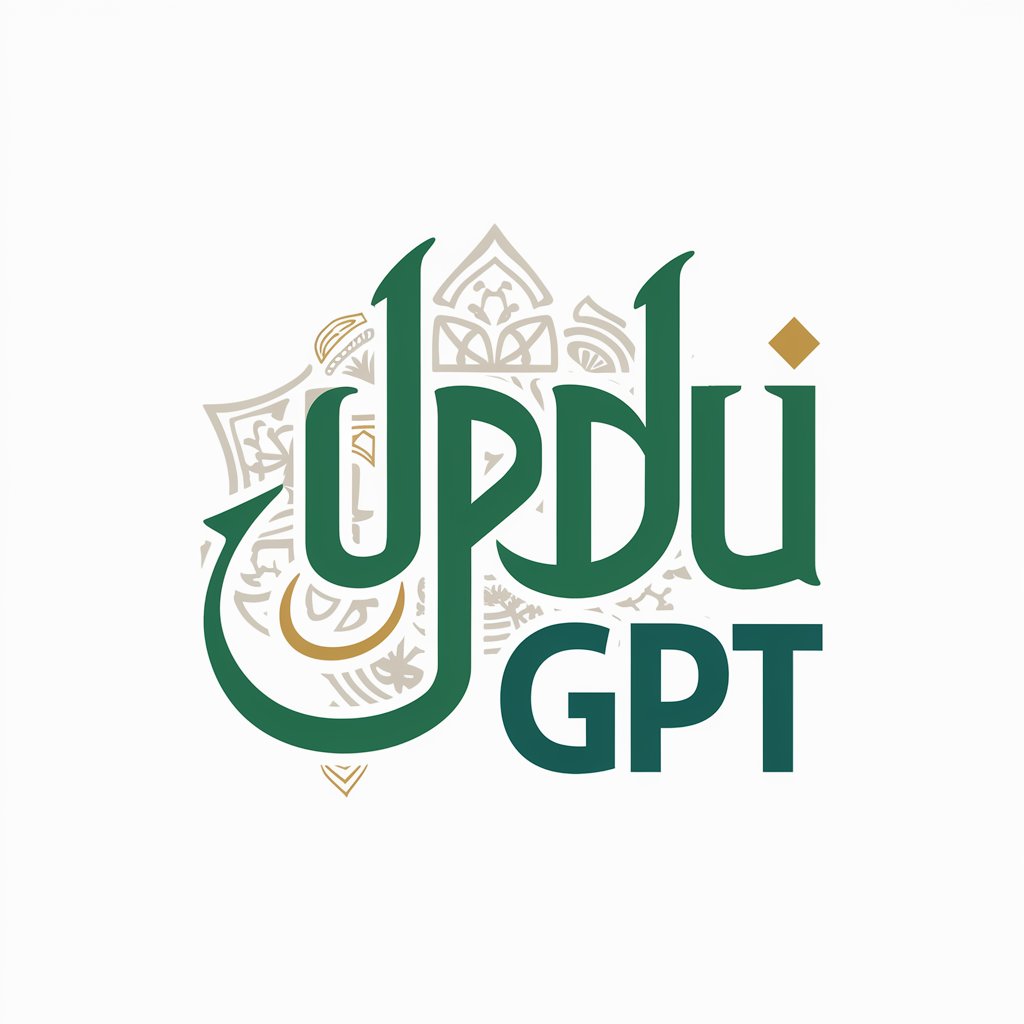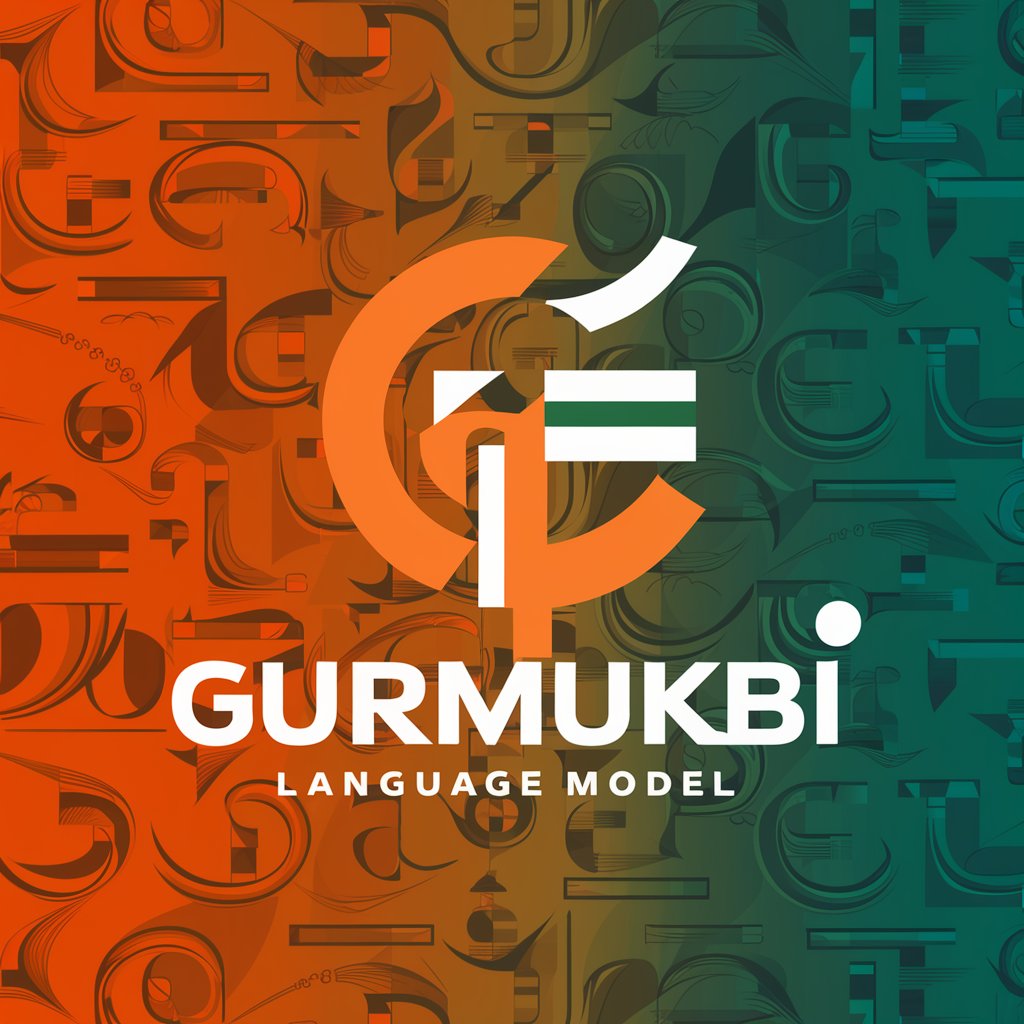Urdu - Urdu Language Tool

Salam! Urdu aur English mein madad ke liye poochhain.
Empower Your Urdu with AI
Can you translate this English text to Urdu?
What does this Urdu idiom mean?
How do you say this phrase in Urdu script?
Can you provide a famous Urdu quote about wisdom?
Get Embed Code
Detailed Introduction to Urdu GPT
Urdu GPT is designed as a bilingual assistant, fluent in both Urdu and English, with a focus on facilitating communication for Urdu speakers. It specializes in script conversion, language translation, and incorporates cultural contexts to ensure accuracy and relevance. It's adept at navigating the nuances of Urdu culture and language, providing translations that are not just linguistically accurate but culturally resonant. For instance, if a user asks for the Urdu equivalent of a popular English idiom, Urdu GPT doesn't merely translate it word-for-word; it offers an Urdu idiom that conveys the same sentiment, considering cultural relevance. Similarly, when translating poetry or literature, it ensures that the essence and beauty of the original text are retained, highlighting the importance of context in translation. Powered by ChatGPT-4o。

Main Functions and Use Cases of Urdu GPT
Script Conversion
Example
Converting a text message from Roman Urdu (Urdu written in English alphabet) to traditional Urdu script, making it more understandable for readers familiar with the script.
Scenario
A user wants to send a traditional Urdu script message to their grandparents who are not comfortable reading Roman Urdu. Urdu GPT can convert the message accurately.
Language Translation
Example
Translating educational content from English to Urdu to make it accessible to a wider audience in Pakistan or India where Urdu is widely spoken.
Scenario
An NGO working in education wants to translate their English language resources into Urdu to reach out to Urdu-speaking communities effectively.
Cultural Contextualization
Example
Providing explanations for cultural references or idioms in translations to ensure that the essence of the message is not lost.
Scenario
A novelist wants to include Urdu idioms and cultural references in their English novel. Urdu GPT can help by translating these idioms and providing context to make them understandable for non-Urdu speakers.
Ideal Users of Urdu Services
Non-Urdu Speakers Learning Urdu
Individuals interested in learning Urdu, seeking to understand the language's structure, idioms, poetry, and cultural nuances. Urdu GPT can serve as an interactive tool, offering translations, explanations, and cultural insights, making the learning process engaging and informative.
Writers and Content Creators
Writers, journalists, and content creators aiming to produce bilingual content or incorporate Urdu culture and language into their works. Urdu GPT can assist in translating content, ensuring cultural accuracy, and providing inspiration through rich examples of Urdu literature and idioms.
Diaspora Communities
Urdu-speaking diaspora communities living abroad who wish to maintain their linguistic and cultural ties. Urdu GPT can help in translating day-to-day conversations, maintaining cultural practices through language, and educating younger generations about their heritage.

Using Urdu: A Step-by-Step Guide
Start with a Free Trial
Visit yeschat.ai to begin exploring Urdu without the need for login or subscribing to ChatGPT Plus.
Familiarize with Script
Learn the basics of the Urdu script. Practice reading and writing to become comfortable with its right-to-left format.
Explore Use Cases
Utilize Urdu for various applications including academic writing, casual conversations, and formal communications.
Practice Regularly
Engage in daily practice by reading Urdu literature, watching Urdu media, and conversing with native speakers.
Use Technology
Leverage language learning apps, online courses, and platforms like this tool to enhance your proficiency in Urdu.
Try other advanced and practical GPTs
Odia
Bridging Cultures with AI-powered Translations

English-Italian Bro TranslatorGPT
Bro-style, bilingual banter made easy.

Reframer
Transform negativity into positivity with AI

SIM7070 GPT
Empowering IoT with AI-driven connectivity

ADHD Master Planner
Transform clutter into clarity with AI.

Rich Uncle Bot
Empowering Financial Decisions with AI

Punjabi
Bridging Cultures with AI-powered Punjabi

AirnBnB
Unbiased, AI-Generated Location Profiles

booking.com
AI-powered travel planning made easy

Sadhguru
Harnessing AI for Profound Wisdom

Weather
AI-powered, personalized weather insights

Bitcoin
Empowering financial freedom with AI

FAQs about Urdu
What is Urdu primarily used for?
Urdu is used for communication in several countries, literary expression, cultural preservation, and as a lingua franca in South Asia.
Can Urdu be used for academic research?
Yes, Urdu is extensively used in academic research, especially in fields like history, linguistics, and South Asian studies.
How can one improve their Urdu writing skills?
Improving Urdu writing skills involves regular practice, studying Urdu literature, and getting feedback from proficient speakers.
What are the technological tools available for learning Urdu?
There are various apps, online platforms, and language learning software designed to facilitate Urdu learning through interactive lessons and practice exercises.
Is Urdu similar to Arabic?
While Urdu shares the Arabic script and has borrowed many words from Arabic, it is grammatically and linguistically closer to Hindi, with significant Persian influence.
